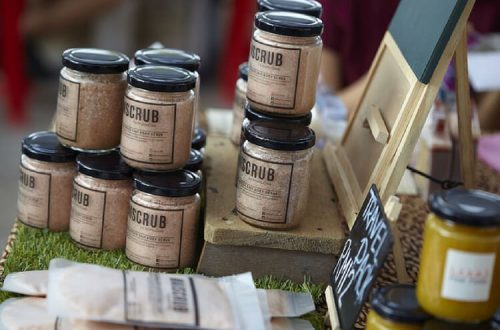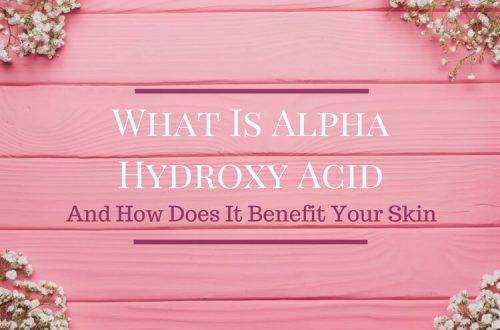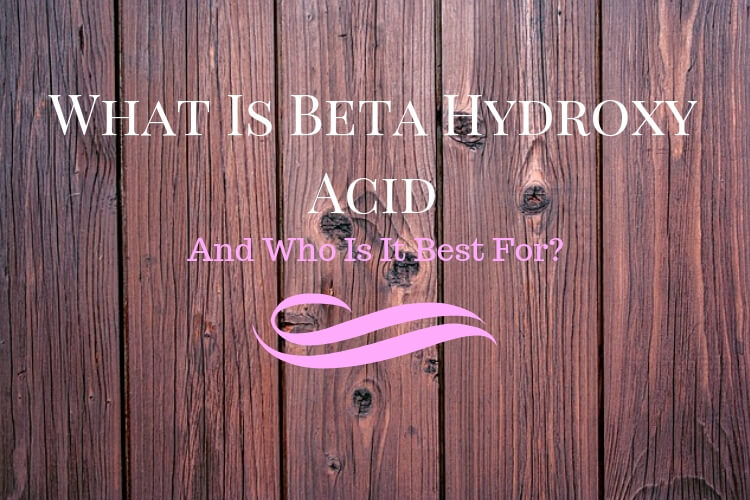
What Is Beta Hydroxy Acid And Who Is It Best For
What is beta hydroxy acid and what exactly is it used for in the skincare world. If you’re new to chemical exfoliants then chances are you’ve heard the term AHAs (alpha hydroxy acids) and BHA (beta hydroxy acid) but you may not necessarily know exactly what they are, how they work or who they’re best suited for.
For a long time, I ignored them and didn’t use them in my skincare routine mainly because firstly I didn’t understand them and secondly because if I’m being totally honest, they kinda scared me a little. In reality though, my fear was unjust and it turned out that they are actually very effective products for improving a number of different skin concerns. You can read more about AHAs here but for now, we’ll look at BHA.
What Exactly Is Beta Hydroxy Acid (BHA)

Beta Hydroxy Acid which is also known as salicylic acid is a compound used in skin care products as a chemical exfoliant. This naturally occurring compound which is a derivative of aspirin is extracted from the bark of the willow tree and used in several different types of skincare products mainly for its exfoliating properties.
Chemical exfoliants are quite different from their physical counterparts because they help to unglue and dislodge the dead skin so that it can shed naturally more easily rather than more aggressively scrubbing it away. This actually makes them a gentler alternative as long as they’re used correctly. Unlike Alpha Hydroxy Acids (AHAs) which are water-soluble, Beta Hydroxy Acid is oil soluble making it more suitable for those with oily or acne-prone skin.
The Skin Benefits Of Using BHA
There are numerous skin benefits to using BHA because as much as it’s mainly an exfoliant, it does have other properties too including antimicrobial and anti-inflammatory properties. From an exfoliant point of view, its exfoliating ability goes slightly deeper than that of its AHA relatives due to its oil-soluble nature.
AHA’s tend to exfoliate the uppermost layers of the skin and are said to be most suitable for those with dry or sun damaged skin but BHA is slightly different. As much as it too exfoliates the surface layers, it also has the ability to exfoliate at a deeper level right down into the pores to remove dead skin cells and any build up of excess oils.
BHA For Acne Prone Skin
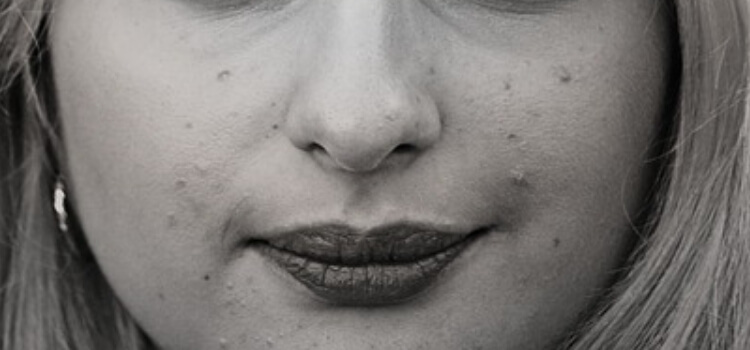
The oil-soluble nature and deeper exfoliating ability of BHA are why it’s often recommended for those with oily or acne-prone skin. Not only does it have the ability to clear pores at a deeper level to help fight existing acne but it also helps to keep the pores clear to prevent further outbreaks.
Its antimicrobial and anti-inflammatory properties are another important part of its suitability for those with acne prone or oily skin types. These properties help to not only remove and prevent bacteria but also to alleviate and calm inflamed skin which often accompanies acne.
BHA For Anti-Aging Purposes
Much like AHAs, BHA has numerous other properties that can help with a multitude of anti-aging concerns too. Because it’s so effective at removing dead skin cells, this allows the fresher healthier skin to be revealed from underneath and that also allows for new cell growth which also results in healthier looking skin.
It can help with collagen production and improving skin thickness which results in firmer and more youthful looking skin. It’s also said to help improve the appearance of fine lines and wrinkles and help to improve uneven skin tone for a smoother, brighter and clearer looking complexion.
Where To Find BHA
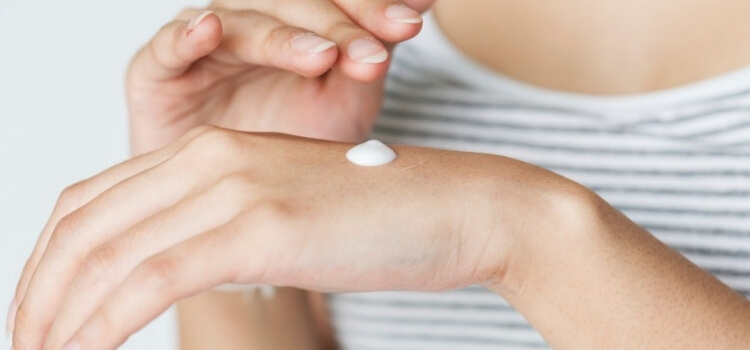
BHA is found in numerous skincare products ranging from moisturisers and toners to even cleansers. You’ll also find it in products marked specifically as BHA on the label but for best results, it’s probably best to opt for leave on products such as moisturisers rather than products that are rinsed off such as cleansers.
Even though it is often added to cleansers, these are thought to be less effective because the product is rinsed off so quickly. This means that the BHA probably hasn’t had enough time to fully absorb into the skin, therefore, rendering it less effective than a leave on product.
Precautions And Side Effects
As a whole, BHA is considered to be less irritating than its AHA relatives but that doesn’t mean that it can’t cause irritation to some especially when used incorrectly. Like any chemical exfoliant, it’s best to start off slowly by just using twice a week to begin with and gradually building up to more frequent use as and when your skin adjusts to it. They can eventually be used up to twice daily once your skin is ready.
BHA also comes in different strengths so it’s best to start with the lowest concentration and gradually move up to higher strengths if and when you feel your skin can tolerate it. Going in too strong and too fast can cause numerous unwanted side effects such as itching, stinging, burning, skin redness and irritation so a slow introduction is the best way to avoid any adverse reactions.
Check Your Existing Products
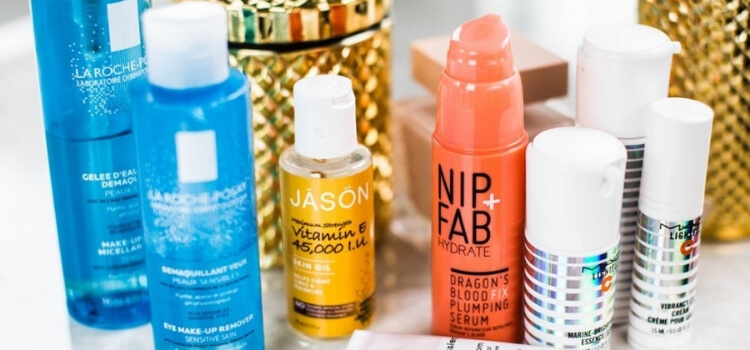
Because chemical exfoliants are already added to numerous skincare products, it’s worth checking your existing products first to see if any of them already contain some. It’s not unusual for people to overdo their chemical exfoliant usage due to being unaware that so many of their existing products already contain a chemical exfoliant or two to begin with so it’s best to check your labels to avoid overuse.
It’s also worth noting that BHA can cause a drying effect hence it’s suitability to those with oilier skin types so a good moisturiser is essential over the top. BHA (and AHAs for that matter) also tend to make the skin more sensitive to the sun which unfortunately means more susceptible to sun damage so a broad spectrum sunscreen is paramount when using one although it should already be anyway.
A Great Addition When Used Correctly
So as much as I was initially reluctant to use a chemical exfoliant, it turns out that I had them all wrong because not only do they have more skin benefits than physical exfoliants, they’re also gentler too. So as long as you don’t over do it and use them correctly, they can be an excellent addition to your skincare routine and I truly regret not using one sooner.
What do you think about BHA and chemical exfoliants? What kind of skin improvements did you see after using them and which do you prefer, chemical or physical exfoliants? Please feel free to share your thoughts and opinions in the comments below.



